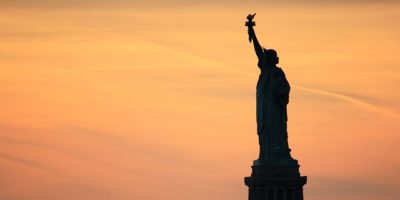Lilith Feature
How Being a Jew & Being a Feminist Collide, Co-Evolve, Cohabit in 7 Women’s Lives
On these pages, seven Jewish women talk to Lilith about their journeys, as feminists and as Jews, on the occasion of Lilith’s 35th anniversary. They share mash-up moments of identity coalescence: catapulting into kashrut in solidarity with refuseniks after a visit to the U.S.S.R.; celebrating being “the last kaiser roll in the bodega” (a still-single Jewish hotty in a multicultural ‘hood); choosing to get tattooed with a totemic Deuteronomic verse. Some women take a narrow lens to their Jewish-female identities and feel no particular struggle. Others are on the ramparts, reminding us that there’s still so much that is not egalitarian in Jewish life.
Diane Balser, at 68, offers a longitudinal view of taking both her Judaism and her feminism very seriously — and of struggling to reconcile and integrate both as they morph through many decades (through their sicknesses and health, in times that bring tzuris as well as joy). Balser recalls times in her life when her feminism and Judaism are aligned, times when her two identities feel painfully at odds, and times when the “intersectionality” of the two eludes her, but feels clear years later.
She recalls a trip, for example, that she took with three activist girlfriends in 1971 to do “women’s liberation” consciousness-raising in the South. At a certain point Balser remembers having to phone her mother to break the news that she wouldn’t be home for seder.
“I was physically quaking in the phone booth,” she says. “At that point in my life — I was 27 — my mother was the thing that reminded me of my Jewish identity, my mother and how we were connected. It now feels astonishing to think that here I was, doing activist work with three other Jewish women, and it never occurred to me that what we were doing was in any way Jewish. I had not yet explored what Judaism meant to me, or how it had shaped my social justice values. It didn’t occur to me then to look for a seder in the South. I would certainly do that now. In retrospect it seems clear that I was reflecting a conflict in the women’s movement itself.”
Balser models for the rest of us being someone who will not throw out either baby with the bathwater; she is just always getting on with the business of justice, making shorter that famously long arc of the moral universe.
Lilith hopes that the stories on these pages will provoke you, thoughtful reader, to ask yourself questions about how Judaism and feminism fit together in your life: What journey have I had as a feminist? As a Jew? Have there been specific incidents that changed something core for me? How have my Judaism and my feminism coexisted over time — have they felt compartmentalized or integrated? And the future of integration? Am I hopeful?
In the next 35 years, we hope that, for all of us, feminism and Judaism become even more closely allied. A good place to start is with sharing the maps of our own experience.
In This Feature
Jill Finkelstein
Joanna Ware, 25, Community Organizer and Educator at KeshetHer feminist-Jewish tattoo
Jill Finkelstein
Ronit Sherwin, 39, Executive Director, HillelHer feminist-Jewish-Orthodox-single motherhood
Jill Finkelstein
Jane Eisner, 56, Editor of the Forward NewspaperHer feminist-Jewish all-of-a piece finally
Jill Finkelstein
Vanessa Hidary, Ageless Diva, Spoken Word Artist, Actress, Writer, DirectorHer feminist-Jewish viva Puerto Rico!
Jill Finkelstein
Enid Schatz, 40, Assistant Professor in Women’s StudiesHer feminist-jewish-interracial-interfaith family
Jill Finkelstein
Mimi Arbeit, 26, Doctoral Student in Child DevelopmentHer feminist-Jewish sex education


